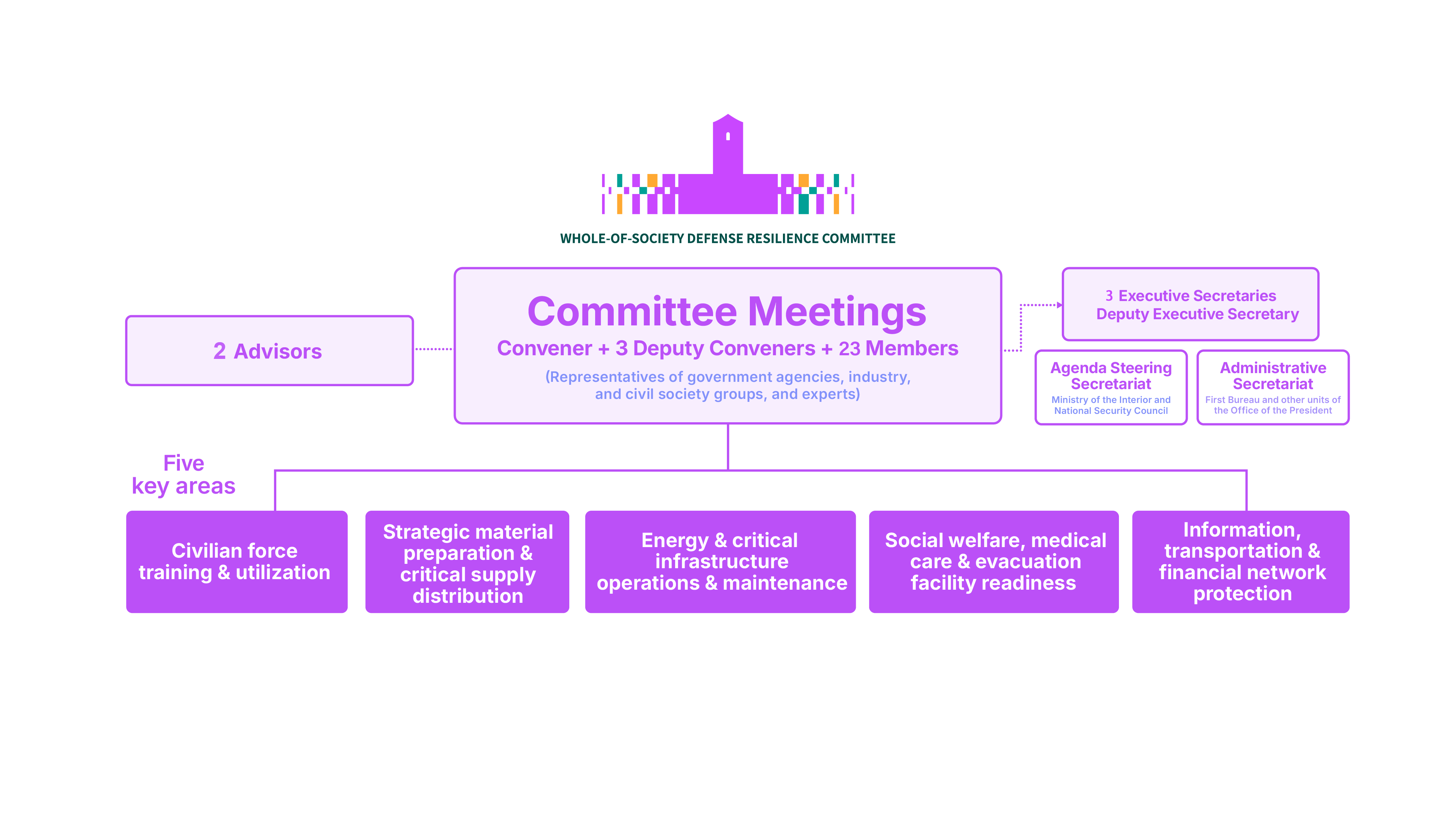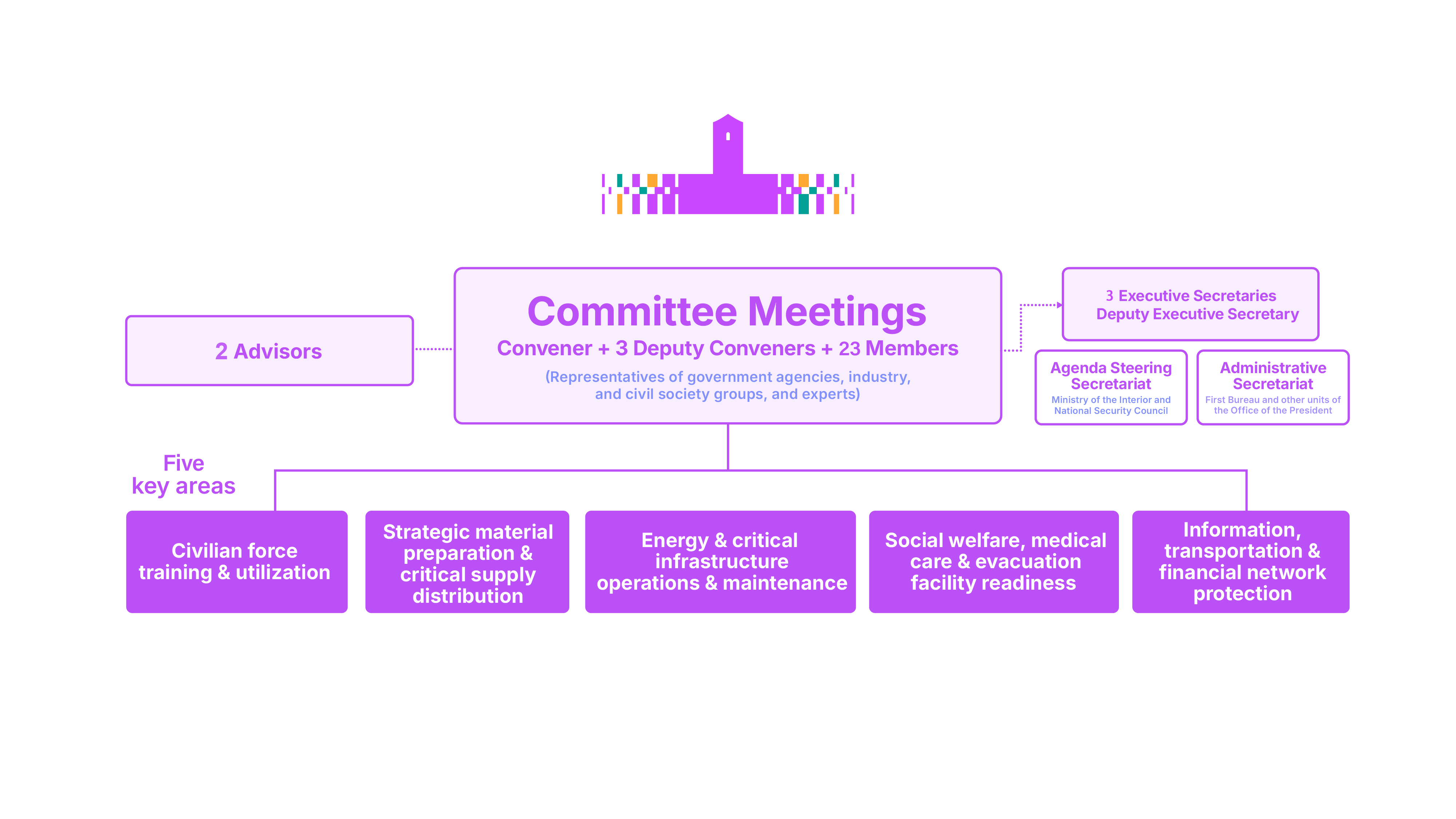Whole-of-Society Defense Resilience Committee
 About the committee
About the committee
Origin and Tasks
At a press conference on June 19, 2024, the president announced the establishment of the Whole-of-Society Defense Resilience Committee at the Presidential Office, the purpose of which is to ensure that in times of national emergency or natural disaster, both the government and society will be able to maintain normal operations. The committee gathers representatives from various sectors to form a communication platform for formulating strategies to enhance national self-protection capabilities so as to effectively respond to various disasters and risks.
The Whole-of-Society Defense Resilience Committee will in principle convene once every three months at the Presidential Office. It will undertake three main tasks: it will serve as a platform for social participation, a bridge for social communication, and an engine for policy effectiveness, through which it aims to foster social consensus and put that into action. In this way, the committee will work to strengthen the resilience of our entire society and thereby strengthen Taiwan.
Organization Chart
The committee shall consist of 27 members, with the president serving as its convener. There are three deputy conveners. Representatives of government agencies, industry, and civil society groups, and experts constitute the remaining 23 members. The committee shall also appoint two advisors. Members and advisors are appointed for a one-year term, with the possibility of reappointment or new appointments as necessary. Government officials and representatives from various sectors of society may be invited to attend meetings as non-voting participants.
The committee shall have three executive secretaries and one deputy executive secretary. The Ministry of the Interior and the National Security Council shall serve as the agenda steering secretariat, while the First Bureau and other units of the Office of the President shall act as the administrative secretariat.
The committee holds discussions in five key areas: civilian force training and utilization; strategic material preparation and critical supply distribution; energy and critical infrastructure operations and maintenance; social welfare, medical care, and evacuation facility readiness; and information, transportation, and financial network protection.




